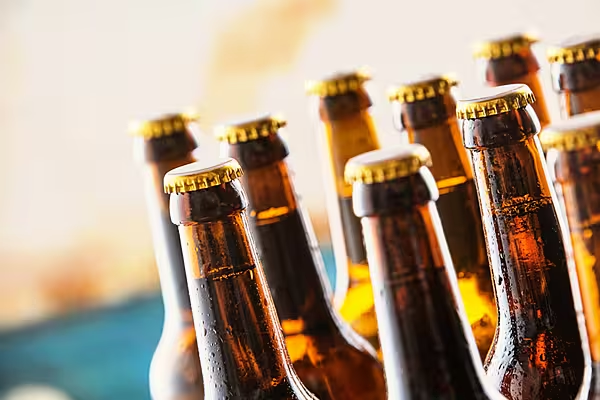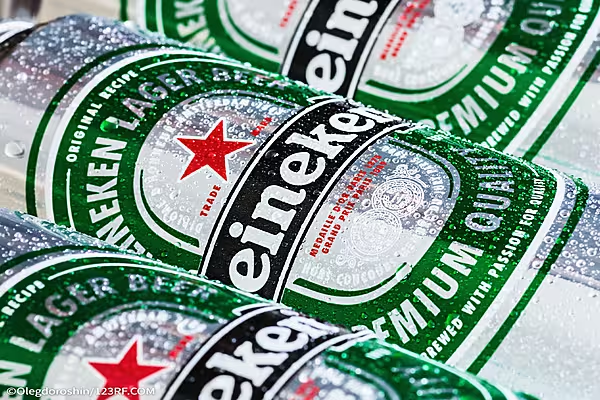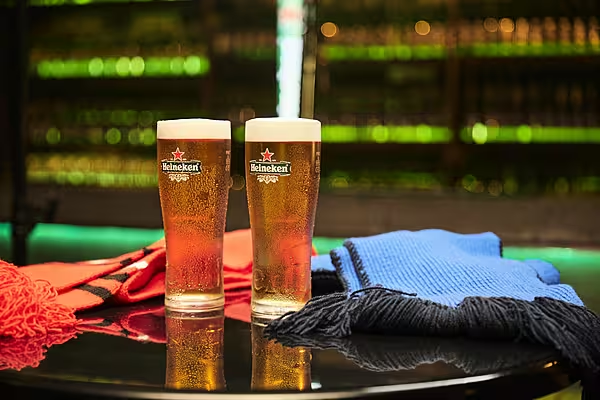Spain's lockdown, one of Europe's strictest, crushed the tourism trade and closed restaurants for around two months, meaning less thirst for cava - the beloved, fizzy alcoholic drink mainly produced in the northeastern Catalonia region.
"We face the perfect storm because it amplifies all the problems," said Damia Deas, chairman of the Institut del Cava business group representing 70% of cellars and also manager of the Vilarnau brand.
"(Coronavirus) affects the whole value chain."
Temporary Layoffs
Around 60% of the 214 producers have conducted temporary layoffs, according to Deas, who believes sales could fall between 25% and 40% in 2020 from the 250 million bottles produced in 2019: the second best year on record.
About two-thirds of bottles are exported, in competition with French champagne and Italian prosecco.
During the lockdown, domestic sales have fallen more than abroad, Deas said, but there was at least a pickup in Spain this month compared to April thanks to greater home consumption.
Having suffered a 3.2% production decline in 2018, largely due to nationwide protests over Catalonia's independence bid, Spain's €1.2 billion cava sector bounced back to an overall 2% rise last year despite a slim fall in exports.
With harvest coming in mid-August, social distancing and hygiene measures such as masks should not limit grape-picking since there would be space and machinery, said Deas. It takes at least a year after picking for bottles to go on sale.
Cava's regulatory board chairman, Javier Pages, agreed the harvest should be able to take place. But he warned that coronavirus-related measures were raising costs and complicating some aspects, such as workers having been unable to share a vehicle to the fields.
Prosecco Holding Up
Spain's cava producers may want to borrow some ideas from Italy where social media marketing initiatives, including tasting sessions via video, and webinars with groups from German students to Chinese bar tenders, have propped up the prosecco market.
Prosecco sales in the first four months of 2020 actually grew 0.4% versus the same period last year, with supermarket revenue and exports offsetting a slump in bars and restaurants.
And Italy's production in May was back at 2019 levels thanks to "reasonable optimism for the future", said Stefano Zanette, president of prosecco's regulatory body.
Though Spain's cava sector does not have year-to-date data yet, the assumed sales collapse during the pandemic will likely cause a bottles surplus at harvest, which could dent grape prices and again upset farmers.
They went on strike last September after major cava firms paid about 30% less for grapes than the previous year.
Largest Production Cut
Citing the pandemic's impact and to avoid a price collapse, Cava's regulatory board approved its largest production cut ever for the upcoming harvest - with 2,000 kg of grapes per hectare less than usual - to try to deal with an excess of grapes and juice amid lower demand.
Deas said the sector should receive state aid, for example to help farmers sell grapes for alcohol-based hand sanitizers.
An Agriculture Ministry spokeswoman said there would be help for the cava industry - including for sanitisers' production - in a €85 million ($93 million) package being prepared for the winemaking sector, which accounts for 1% of Spain's gross domestic product.
A Transformative Time
The coronavirus has come at a transformative time for cava.
The two biggest producers stopped being family-run in 2018, with Germany's Oetker Group taking a majority stake at Freixenet and American private equity Carlyle Group assuming the nearly five-century-old Codorniu brand.
Pages, a former Codorniu CEO, took over the regulatory job in 2018 seeking to boost bottle prices. But the economic fallout from the coronavirus will make that a tall order.
"The intention is to promote the brands more, but in this coronavirus time it won't be easy," he said.
News by Reuters, edited by Donna Ahern, Checkout. Click subscribe to sign up for the Checkout print edition.









